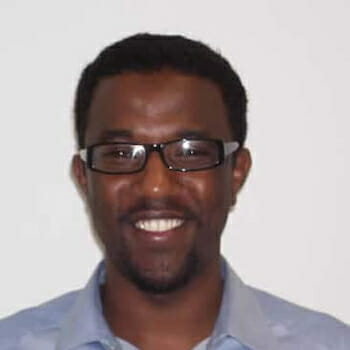
Culture
Can Political Islam Co-Exist with Modernity?
Thanks in no small part to the Arab Spring, now commonly referred to as the Arab Winter – observers and politicians in the liberal leaning west and elsewhere are wary as parties with an Islamic ideological bent ascend to the political pulpits throughout the Middle East and North Africa. From an empirical perceptive, their suspicions are justified. Firstly, little is known of Islamists’ capacities as seasoned, mature, responsible, and effective leaders. Secondly, their discourse, at least in the last two or three decades, has been non-pluralistic in tenor and outlook at best, and inimical to liberalism and democracy at worst.
There is a statement attributed to the Muslim Brotherhood’s Dr. Mohamed Badie that was featured in many Egyptian newspapers on January 2, 2012, in which he stated: “The imposition of the Caliphate was and still remains the benchmark of the union since inception. The time has come to formulate and set up a Muslim state that lives and breaths through Islamic Sharia law; the Arab Spring has paved the way for the actualization of such a lofty goal.” The statement, if it indicates anything, is that Islamists remain tethered to their old paradigms—namely the ultraconservative view which negates modern ideals in favor of “inerrancy” of Scriptural text.
In this sense, unless Islamists’ undertake overarching paradigm shifts, the tumultuous bustles in the Middle East may disrupt current global alignments. From the time Islamist groups appeared in Muslim countries, anti-modernity interspersed with scriptural text have been the bread and the butter of their rhetoric. Of course, there are several mechanisms, theoretical and practical, responsible for Islamists’ modern repudiation sentiments, however, in this analysis, I confine myself to relating a few theoretical ones which I deem chiefly relevant to the phenomena at hand.
Synthesizing Religion and State
To the Islamists, Islam’s subject matter is simultaneously secular and spiritual. In other words, Islam is a religion of the two realms. A slogan like “Islam is the solution” used at rallies by the Muslim Brotherhood buries beneath it “ecclesiastical thinking.” A religious ideology defined by their narrow understanding of the Koran. It is remarkable how this polity is antithetical to pluralistic ideals and democratic mores. Democracy develops through deliberations, speculations, and conjectures that are amenable to differing human temperaments. By and large, Islamist doctrines are not in line with these ideals as we have seen
Conceptual Inerrancy
Islamists’ pride themselves on being the most enlightened Muslims, representing what they believe to be His politics which are enacted through their policies once in office, or through acts of violence against the unenlightened. Their discourse contradicts the notion that they are God’s shadow and His chosen representatives here on Earth.
The Muslim Brotherhood’s political wing, the Freedom and Justice Party, demonstrates this. Furthermore, they contend that their belief systems and policies are the best and most advantageous path to realize a society that represents what they perceive to be God’s will. This system of government, if and when it is put into action, carries with it the perils of imposing a system upon others while disregarding their consent in the name of its dubious noble goals. History is full of similar grandiose systems that promised fraternity, comradeship, justice, and prosperity that failed to live up to their promises and faltered! They lacked an essential component without which, it, polities will seldom succeed.
Collapsing Historical Dimensions
Collapsing historical dimensions refers to a dogma that suggests monotonic solutions that suffice to resolve all problems regardless of the context and timeline which Islamists espouse. Sayyid Qutb (1906-1966), the spiritual leader of Muslim brotherhood and arguably the greatest authority on political Islam, called for a perpetual solution to Muslims’ full-fledged woes. Conversely, the ideas he espoused have been the cornerstone of Al Qaeda. In his Milestones, Qutb wrote that this religion “had molded this nation in the first place; the same religion must be utilized whenever the need to raise this nation from torpidity arises.”
By the same token, Abdel Moneim el-Shahat, a prominent spokesman for the Salafist movements in Egypt, in an interview with London based Al Sharq Alawsat stated “the problem with democracy is that people formulate its decrees and regulations while in Islam Allah are the only legislator.” This state of mind carries within it a stupor which is dangerous to critical thinking and could become a breeding ground for fatalism. Additionally, this intellectual numbness—as far as productivity, efficient, and policy-making go—is futile. Effective policy-making decisions require mastery of knowledge about politics and history, as well as a local context. There is a real danger when, in the absence of empirical based policy, one simply assumes that one’s abstract panacea must cure all human ills. While Islamists are great at guiding people to the path of Paradise, they are usually at a loss to stipulate politically pragmatic solutions. The failure to incorporate these ideals is the elephant in the room.
With the Right Paradigm, Everything is Feasible
International relation polices are not solely dictated by philosophies of metaphysical understandings. Such factors as the political acumen of the ruling party, the prices of commodities, and the international community receptions, just to name a few, are all determining variables in their own right. But ideas’ significant relevancies to the enterprise of governance and policy affairs cannot be ignored. Consistent within this fact, political Islam as we have noted, lacks the necessary political theory that may enable it to coexist, exchange ideas, and work with different perceptions in the community of states. In this context, one cannot resist the temptation to speak about “an anomaly” (in Thomas Kuhn’s term) hampering Islamists’ progress.
Kuhn advocated an amendment in science when a prevailing intellectual model breaks down and ceases to resolve anomalies. This holds true for policy-making as it is requires a process of problem solving. Problem solving is a venture that prerequisites untrammeled trails of reinvigoration and recuperation coupled with criticism, error elimination, and revision. In the light of the Political Islam’s “us and the rest “discourse, the prospects of a conducive relationship between Islamists and liberalists is hard to entertain. From this vantage point, the current discourse of political Islam requires a new theoretical foundation, a paradigm shift, which is compatible to the moral zeitgeist of the 21st century, namely a modus vivendi that uses empiricism, induction, deduction, and feedback.
The imposition of this system would not only improve Islamists’ capabilities as effective leaders among their societies, but also would lend them the insights and the clout necessary to help them coexist in peace, diplomacy, and harmony with those around them.

